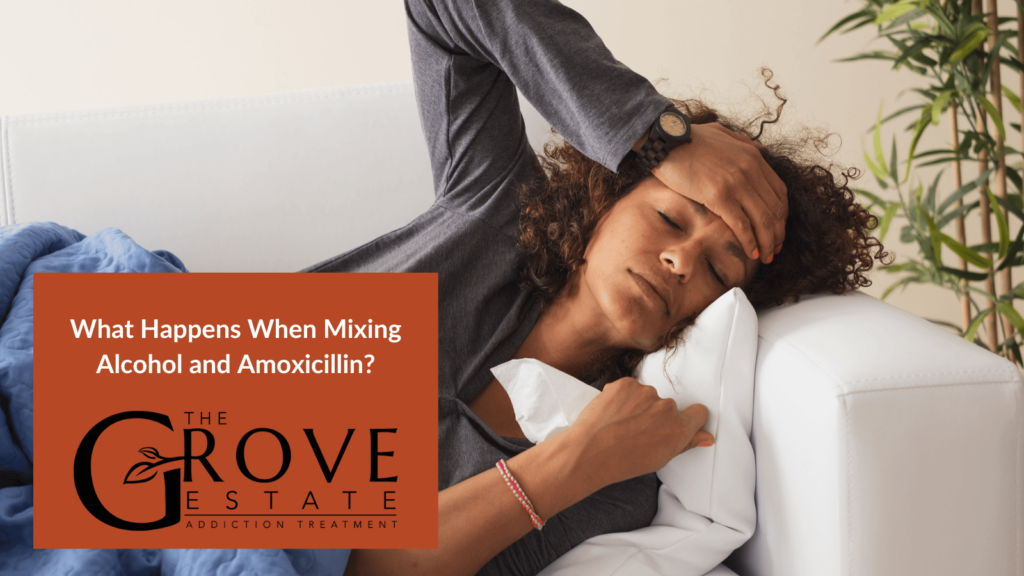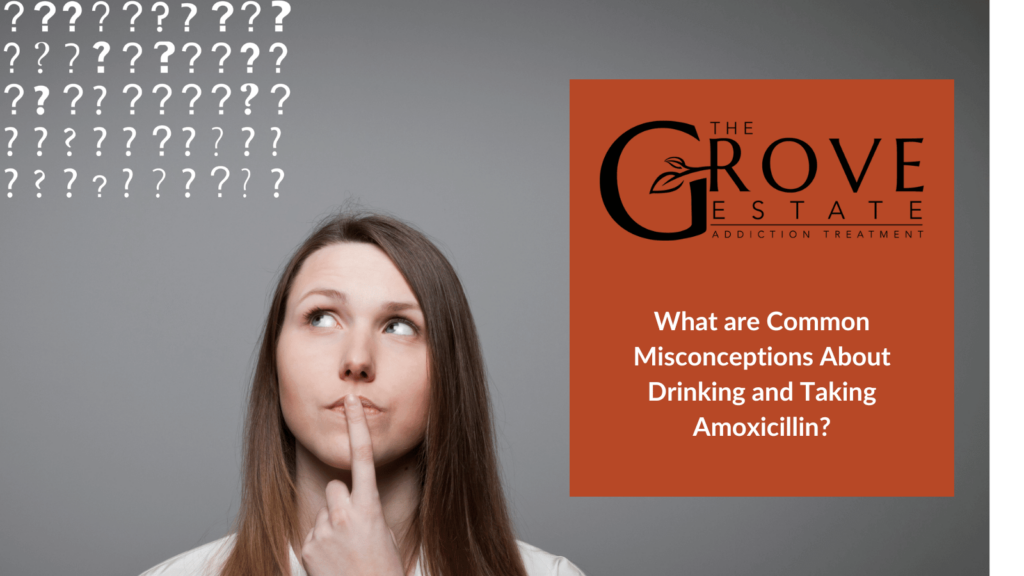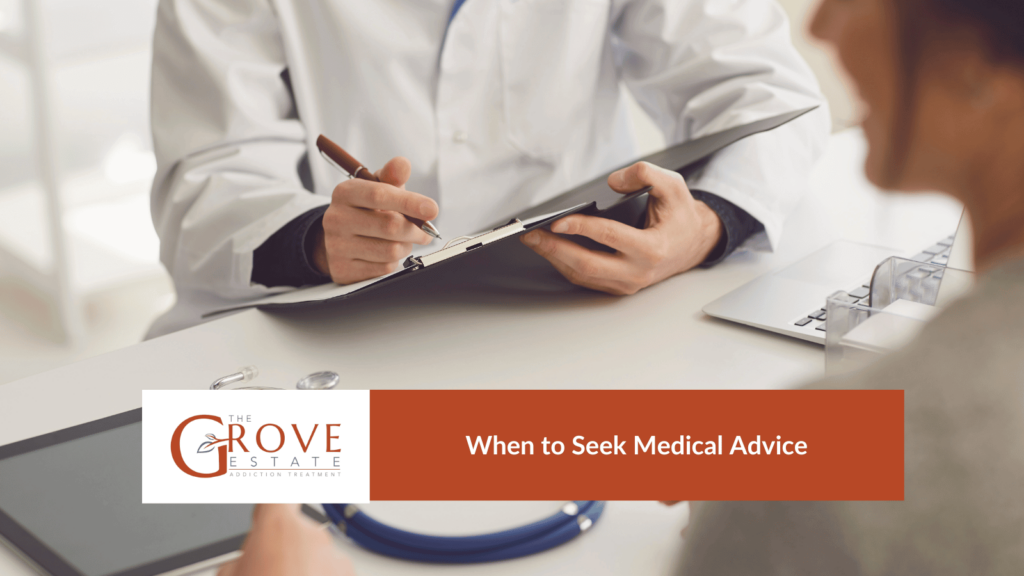When it comes to combining antibiotics with alcohol, the mixture can often lead to confusion and concern among patients. Amoxicillin, a widely prescribed antibiotic for bacterial infections, is no exception. The Centers for Disease Control and Prevention (CDC) reports that nearly 270 million antibiotic prescriptions are written in the outpatient setting in the U.S. each year, underlining the importance of how these medications interact with substances like alcohol.
Consuming alcohol while taking amoxicillin has significant effects on your health and lowers the efficacy of the medication. It is imperative to understand the precautions necessary to ensure both the effectiveness of your treatment and your overall well being.

What Happens When Mixing Alcohol and Amoxicillin?
Amoxicillin is a broad-spectrum antibiotic commonly prescribed to combat various bacterial infections, including ear infections, strep throat, pneumonia, and urinary tract infections. It works by inhibiting the growth of bacteria, thereby helping the body to overcome infection.
The prevalence of alcohol consumption globally presents a considerable chance for interaction between amoxicillin and alcohol. According to the World Health Organization (WHO), in 2016, approximately 2.3 billion people were current drinkers, making public awareness regarding the consumption of alcohol while on medication a necessary topic to research.
While there is no direct evidence to suggest that alcohol renders amoxicillin ineffective, alcohol can potentially exacerbate the side effects of amoxicillin or impact the immune system negatively. Alcohol consumption is known to interfere with the body’s ability to fight infection and can also increase the risk of dehydration, potentially complicating the recovery process from an infection being treated with amoxicillin.
Can You Drink Alcohol While on Amoxicillin?
Medical professionals generally advise that while taking amoxicillin, it’s prudent to moderate or avoid alcohol consumption. This guidance is based on several considerations:
- Potential for Increased Side Effects: Both alcohol and amoxicillin can cause side effects such as stomach upset, dizziness, and nausea. Consuming alcohol while taking amoxicillin may heighten these side effects.
- Impact on Immune System: Alcohol can suppress the immune system, potentially hindering the body’s ability to fight off the infection that the amoxicillin is being used to treat.
- Risk of Dehydration: Alcohol is a diuretic, which can lead to or exacerbate dehydration, a concern when recovering from an infection.
The American Academy of Family Physicians (AAFP) and other healthcare authorities often suggest that while an occasional drink may not cause an adverse reaction for most people taking amoxicillin, the safest approach is to avoid alcohol during the course of antibiotic treatment. This recommendation is part of a broader approach to ensure that medication can do its job effectively and that patients recover from their illnesses without unnecessary complications.
What is Amoxicillin?
Amoxicillin is a widely used antibiotic belonging to the penicillin group, effective against various bacterial infections. It functions by blocking the development of the bacterial cell wall, leading to the bacteria’s death. Amoxicillin is available in multiple forms, such as capsules, tablets, chewable tablets, and suspensions, catering to different patient needs. The dosage is tailored according to the specific infection being treated, as well as the patient’s age and weight, with typical adult doses ranging from 250mg to 875mg. It’s sold under several brand names, with “Amoxil,” “Trimox,” and “Moxatag” being among the most common. Additionally, amoxicillin can be combined with clavulanic acid (as in “Augmentin”) to combat antibiotic-resistant strains of bacteria, enhancing its effectiveness.
Is There a Direct Interaction between Amoxicillin and Alcohol?
Amoxicillin and alcohol don’t have a direct interaction in the way that alcohol might interact with other medications, such as causing increased sedation or severe side effects. However, consuming alcohol while taking amoxicillin can still pose indirect risks and amplify certain side effects associated with the antibiotic.
From a scientific standpoint, alcohol does not directly affect the mechanism of action of amoxicillin. Amoxicillin works by inhibiting the synthesis of bacterial cell walls, leading to the bacteria’s death, and this process is not directly impacted by alcohol consumption. Alcohol metabolism and antibiotic metabolism can both impose a burden on the liver, potentially exacerbating any underlying liver issues or affecting the medication’s effectiveness.
Potential Risks and Side Effects:
- Decreased Effectiveness: Alcohol can impair your immune system, potentially making it harder for your body to fight the infection that amoxicillin is being used to treat.
- Increased Side Effects: Drinking alcohol while taking amoxicillin may increase the likelihood of experiencing side effects such as stomach upset, dizziness, and dehydration, as both can irritate the stomach lining.
- Liver Stress: Both amoxicillin and alcohol are processed through the liver. Consuming them together could theoretically increase the liver’s workload and potentially lead to liver damage, though this is more concerning with medications known to have hepatotoxic potential.

What are Common Misconceptions About Drinking and Taking Amoxicillin?
Navigating the advice on drinking alcohol while taking amoxicillin can be confusing, thanks to widespread myths. Understanding the truth is crucial for safe and effective treatment. Here are some common misconceptions:
Myth 1: Alcohol Makes Amoxicillin Ineffective
- Fact: Alcohol doesn’t directly affect amoxicillin’s ability to combat infections, but excessive drinking can weaken the immune system, potentially hindering your recovery.
Myth 2: Alcohol and Amoxicillin Cause Severe Reactions
- Fact: Unlike some antibiotics, amoxicillin doesn’t cause severe reactions with alcohol, though mixing the two can increase side effects like stomach upset and dizziness.
Myth 3: It’s Completely Unsafe to Drink Any Alcohol with Amoxicillin
- Fact: While it’s best to avoid alcohol to ensure the effectiveness of your treatment, moderate consumption doesn’t typically cause severe issues. However, moderation and individual health considerations are crucial.
How Long After Taking Amoxicillin Can I Drink Alcohol?
The timeline for safely consuming alcohol after taking amoxicillin can vary, but a general guideline is to wait until you have completed your course of antibiotics and your symptoms have resolved. This could mean waiting until a few days after the last dose of amoxicillin, ensuring the antibiotic has had time to effectively clear the infection.
Factors Influencing This Timeframe:
- Length of Antibiotic Course: Shorter courses may allow for an earlier return to alcohol consumption, while longer courses might require a more extended period of abstinence.
- Individual Health Conditions: People with liver conditions or compromised immune systems should wait longer before consuming alcohol, as both the medication and alcohol are metabolized by the liver.
- Severity of Infection: For more severe infections, it’s advisable to avoid alcohol for a longer period to ensure a full recovery.
How does Amoxicillin interact with alcohol compared with Other Antibiotics and Their Interaction with Alcohol?
Amoxicillin’s interaction with alcohol is relatively mild compared to other antibiotics, mainly because it does not have a direct pharmacological interaction with alcohol that leads to severe adverse effects. Here’s a brief comparison with other common antibiotics:
1. Amoxicillin:
- Interaction with Alcohol: Generally considered mild; no severe direct interactions, but alcohol can potentially increase side effects and impair immune system efficiency. Moderate alcohol consumption is usually not problematic, but avoiding alcohol is advised to ensure optimal effectiveness and reduce side effects.
2. Metronidazole (Flagyl) and Tinidazole:
- Interaction with Alcohol: Known for a severe disulfiram-like reaction, including symptoms like nausea, vomiting, flushing, and headache. Alcohol should be completely avoided during treatment and for at least 48 hours after the last dose of these antibiotics to prevent severe reactions.
3. Doxycycline and Other Tetracyclines:
- Interaction with Alcohol: Alcohol does not typically cause direct severe interactions, but it can impair the effectiveness of the antibiotic and increase the risk of side effects, similar to amoxicillin.
4. Ciprofloxacin and Other Fluoroquinolones:
- Interaction with Alcohol: While not causing severe direct interactions, alcohol can increase the risk of side effects such as gastrointestinal upset and dizziness.
The interaction between amoxicillin and alcohol is more forgiving than with antibiotics like metronidazole or tinidazole, which can cause severe reactions. However, just like with doxycycline and fluoroquinolones, consuming alcohol while on amoxicillin is not recommended due to the potential for increased side effects and reduced immune efficiency. The key is moderation and consultation with a healthcare provider for guidance tailored to individual health needs and the specifics of the antibiotic regimen.

When to Seek Medical Advice
If you experience signs of adverse reactions while taking amoxicillin or after consuming alcohol while on medication, it’s crucial to seek medical advice promptly. Allergic reactions, for instance, can manifest as hives, difficulty breathing, or swelling of the face, lips, tongue, or throat, and require immediate medical attention. Severe gastrointestinal issues, such as persistent vomiting, severe diarrhea, or stomach cramps, may also indicate a serious side effect or reaction to the medication.
The importance of consulting healthcare professionals cannot be overstated; they can provide the necessary guidance and treatment to address any adverse effects or reactions you may be experiencing. Always err on the side of caution and contact a healthcare provider if you’re unsure about the symptoms or if your condition worsens.
Does alcohol disrupt the absorption of amoxicillin into the bloodstream?
While alcohol doesn’t significantly impede the absorption of amoxicillin into your bloodstream, excessive drinking can affect your body’s overall health and recovery capability. Moderation is key to ensure the antibiotic works effectively.
Can the combination of amoxicillin and alcohol exacerbate antibiotic resistance?
Directly, alcohol consumption does not contribute to antibiotic resistance when taking amoxicillin. However, misusing antibiotics, including not completing the prescribed course, plays a significant role in the development of resistance.
Are certain types of alcohol less impactful when taking amoxicillin?
The effects of alcohol while on amoxicillin generally do not vary significantly between different types of alcoholic beverages. The primary concern is the alcohol content rather than the type of drink. Regardless of whether it’s beer, wine, or spirits, moderation is advised.
Can alcohol consumption decrease the effectiveness of amoxicillin?
Yes, alcohol consumption can decrease the effectiveness of amoxicillin. Although alcohol does not directly reduce the antibiotic’s ability to fight infection, it can weaken the body’s immune response. A strong immune system is crucial for the body to work alongside antibiotics like amoxicillin to overcome bacterial infections. Additionally, the side effects of both alcohol and amoxicillin can compound, making it harder for the body to recover.
What side effects can occur if I drink alcohol while on amoxicillin?
Drinking alcohol while on amoxicillin can enhance the antibiotic’s common side effects, such as nausea, vomiting, diarrhea, and upset stomach. Additionally, alcohol can cause dehydration, further aggravating these side effects. It’s also possible to experience increased drowsiness or dizziness. To avoid these adverse effects, it’s best to stay away from alcohol during your antibiotic treatment.
How long after finishing amoxicillin can I drink alcohol?
It’s generally advisable to wait at least 48 hours after completing a course of amoxicillin before consuming alcohol. This waiting period allows the antibiotic to fully exit your system and reduces the risk of exacerbating any remaining side effects. Waiting also ensures that your body has had adequate time to recover from the bacterial infection treated by the antibiotic.
Does alcohol interact with other antibiotics like it does with amoxicillin?
Alcohol can interact with certain antibiotics, but not all. Unlike amoxicillin, which does not have a direct interaction with alcohol, other antibiotics like metronidazole (Flagyl), tinidazole (Tindamax), and sulfamethoxazole-trimethoprim (Bactrim) can cause severe reactions when consumed with alcohol. Symptoms can include flushing, headache, nausea, vomiting, and rapid heart rate. It’s crucial to consult with healthcare providers about alcohol use with any antibiotic treatment.
What side effects might I experience if I consume alcohol while taking Amoxicillin?
When alcohol is consumed while taking Amoxicillin, the risk of experiencing side effects such as stomach upset, dizziness, and dehydration may increase. Both substances can stress the body in different ways, complicating the recovery process from bacterial infections. Unlike the interaction between Alcohol and Metronidazole, which can cause severe reactions, Amoxicillin and alcohol primarily lead to an increased risk of side effects rather than direct adverse reactions.
However, it’s essential to approach alcohol consumption with caution during antibiotic treatment. For individuals looking to manage or recover from alcohol dependency, a residential detox program can offer a structured and supportive environment to address these challenges effectively.
What should I do if I can’t stop drinking alcohol while on antibiotics?
If you or a loved one is struggling with alcohol addiction and find it challenging to stop drinking alcohol while taking antibiotics, it’s essential to seek support. Contact your healthcare provider to discuss your alcohol use; they can offer advice or refer you to resources for alcohol dependence.
How can I support my immune system while taking antibiotics like Amoxicillin?
Supporting your immune system while on antibiotics is crucial for enhancing your body’s ability to fight off infections. A key aspect of this support involves maintaining a balanced diet rich in vitamins and nutrients that bolster immune health. Foods high in vitamin C, zinc, and probiotics can particularly benefit the immune system by promoting gut health and providing essential nutrients.
Additionally, staying well-hydrated and getting adequate rest are vital components of supporting your immune system during antibiotic treatment. Engaging in regular, moderate exercise can further strengthen your immune response and overall health, while also counteracting some potential side effects of antibiotics, such as feeling lethargic. For those specifically concerned about the interaction of alcohol with antibiotics, understanding the risks associated with alcohol and Metronidazole highlights the importance of avoiding alcohol to support the effectiveness of antibiotic treatment and immune system function.

Share This Post



